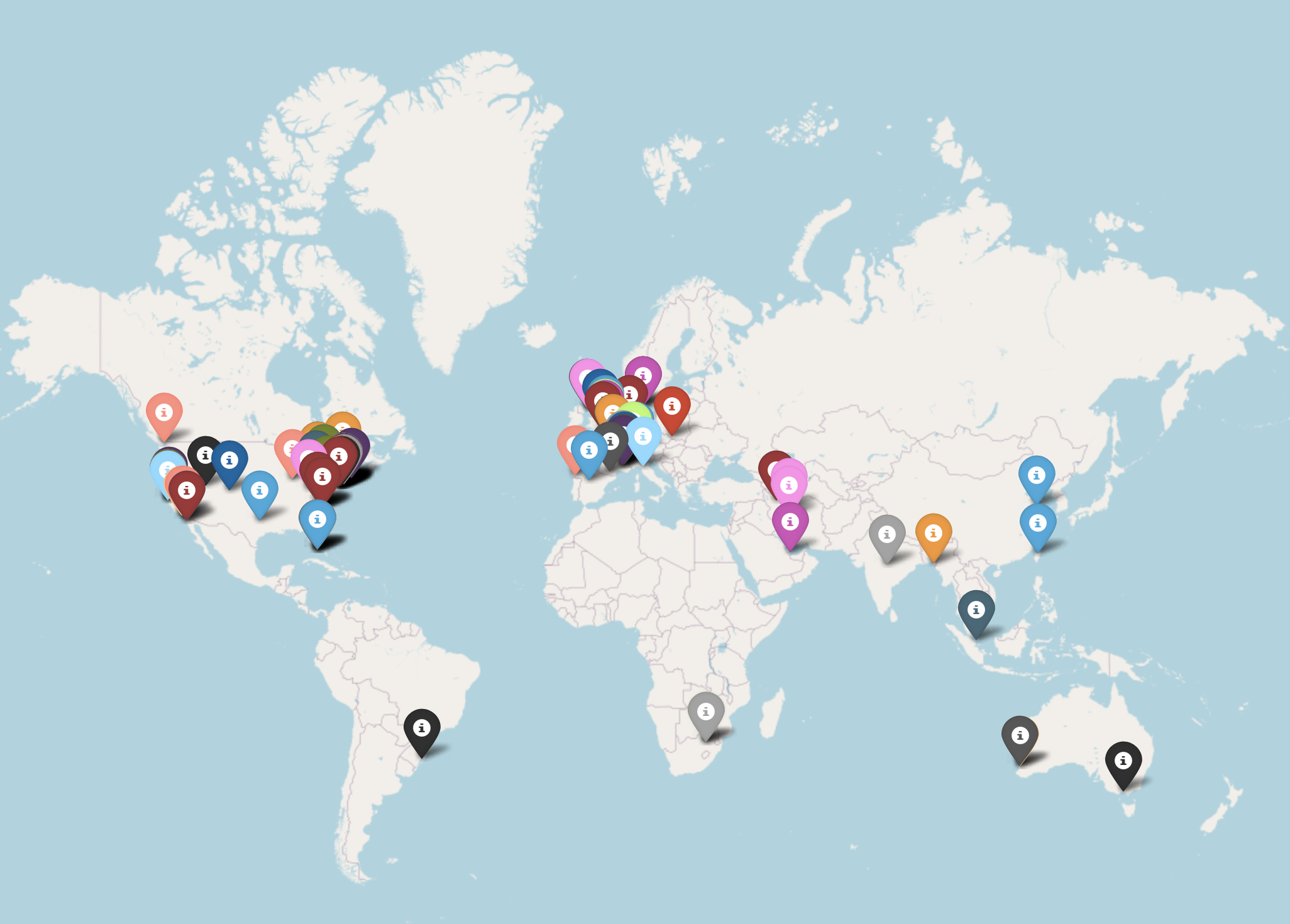Chen Liu, CS PhD Candidate at Yale University.
Research areas: Machine Learning, Spatial-Temporal Modeling, Medical Vision, AI4Science.
This is a simple Python tool to generate an HTML citation world map from your Google Scholar ID.
It is easy to install (pip install citation-map, available on PyPI) and easy to use (see the Usage section).
You will be given an HTML file as the output of the script.
If you open it on a browser, you will see your own version of the following citation world map.
-
Install the package.
pip install citation-map -
Find your Google Scholar ID.
- Open your Google Scholar profile. The URL should take the form of
https://scholar.google.com/citations?user=GOOGLE_SCHOLAR_ID. In this case, your Google Scholar ID is just the stringGOOGLE_SCHOLAR_ID. - Please kindly ignore configuration strings such as
&hl=en(host language is English) or&sortby=pubdate(sort the works by date of publication).
- Open your Google Scholar profile. The URL should take the form of
-
In an empty Python script (for example, the demo script), run the following.
from citation_map import generate_citation_map # This is my Google Scholar ID. Replace this with your ID. scholar_id = '3rDjnykAAAAJ' generate_citation_map(scholar_id)You can take a look at the input arguments (listed below) of the function
generate_citation_mapin case you need those functionalities.Parameters ---- scholar_id: str Your Google Scholar ID. output_path: str (default is 'citation_map.html') The path to the output HTML file. num_processes: int (default is 16) Number of separate processes for parallel processing. use_proxy: bool (default is False) If true, we will use a scholarly proxy. It is necessary for some environments to avoid blocks, but it usually makes things slower. pin_colorful: bool (default is True) If true, the location pins will have a variety of colors. Otherwise, it will only have one color. print_citing_institutions: bool (default is True) If true, print the list of citing institutions (affiliations of citing authors).
I realized a problem with how I used geopy.geocoders. A majority of the authors' self-entered affiliations are not successfully found in the system and hence are not converted to geographic coordinates on the world map. For example, the string "Yale University" is a much better entry than "Assistant Professor at Yale University".
I applied a simple fix with some rule-based language processing. This helps us identify many missing citing locations.
I finally managed to drastically speed up the process using multiprocessing, in a way that avoids being blocked by Google Scholar.
On my personal computer, processing my profile with 100 citations took 1 hour with version 1.0 while it's now taking 5 minutes with version 2.0.
With that said, please be careful and do not run this tool frequently. I can easily get on Google Scholar's blacklist after a few runs.
Very basic functionality.
This script is a bit slow. On my personal computer, it takes half a minute to process each citation. If you have thousands of citations, it may or may not be a good idea to use this script.
I tried to use multiprocessing, but unfortunately the excessive visits get me blocked by Google Scholar.
Dependencies (scholarly, geopy, folium, tqdm) are already taken care of when you install via pip.
This script was written under the assistance of ChatGPT-4o, but of course after intense debugging.





